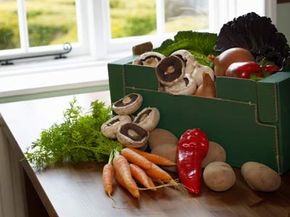You know there are certain people who go into detox in order to rid themselves of certain addictions. When in reference to a diet, it can mean the same thing. Detox is a shortened version of the word "detoxification," which is a term that means the elimination of toxins from the body. The detox diet simply means that you're removing toxins from your bloodstream, liver, kidneys and intestines by means of a strict diet [source: How to Detox].
The detox diet has a purpose beyond simply ridding your body of toxins. True, "toxin," as a word with all its connotations, sounds horrible. But the belief that fuels the detox diet is that all these toxins we breathe in and ingest everyday cause skin problems, headaches, fatigue and sickness. The goal of the detox diet is to help get the body back to a healthful, fresh state. The elimination of the toxins is believed to purify the body and help it function better [source: Gavin].
Advertisement
The notion of a detox diet wasn't invented in this decade. It's been around for centuries, and several cultures throughout history have lauded the effects of detoxification. Mostly, a detox diet can be summed up as a low-calorie, primarily liquid diet that has the goal of cleansing the body [source: Moores]. Though there are several detox diets with different specific plans, such as the Fruit Flush and Martha's Vineyard Detox Diet, the general concept behind them all is the same [source: Every Diet].
Read the next page in order to figure out if you have what it takes to follow the most basic detox diet plan.
Advertisement
